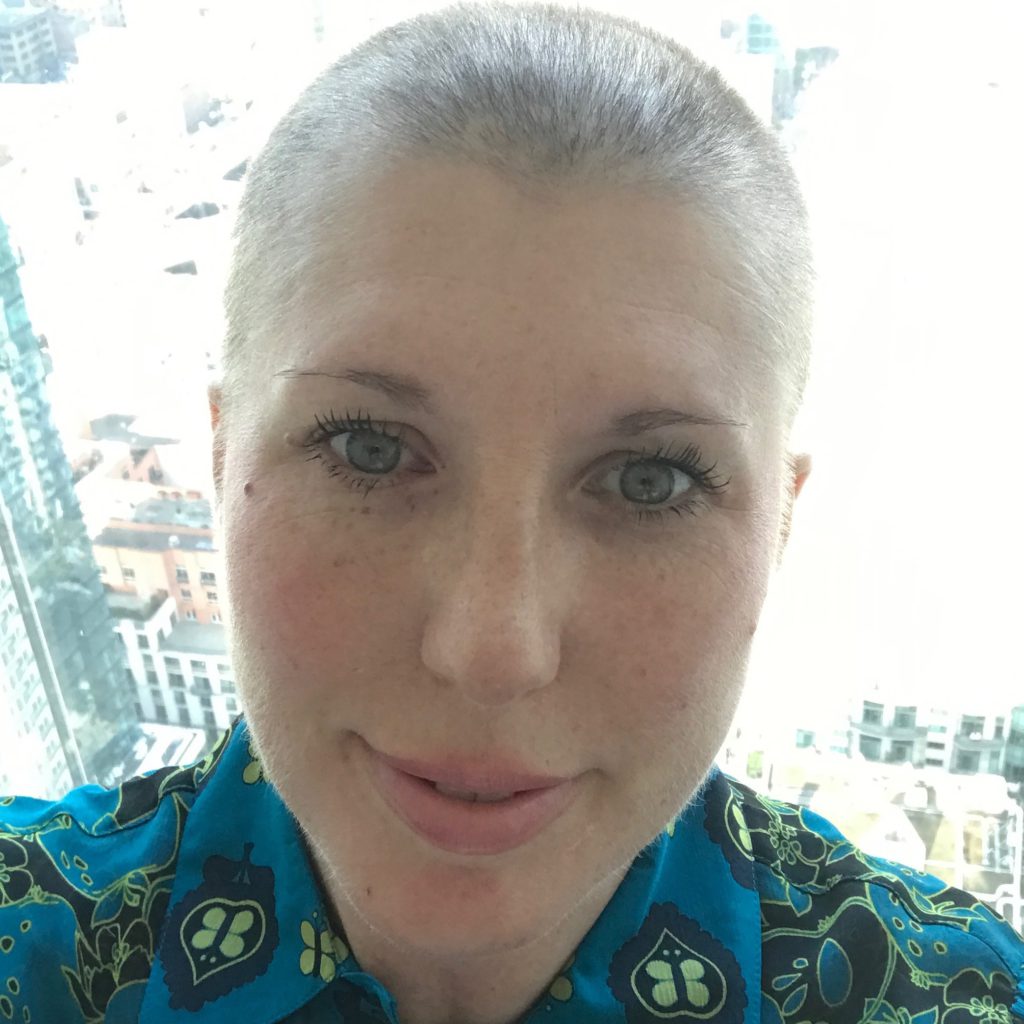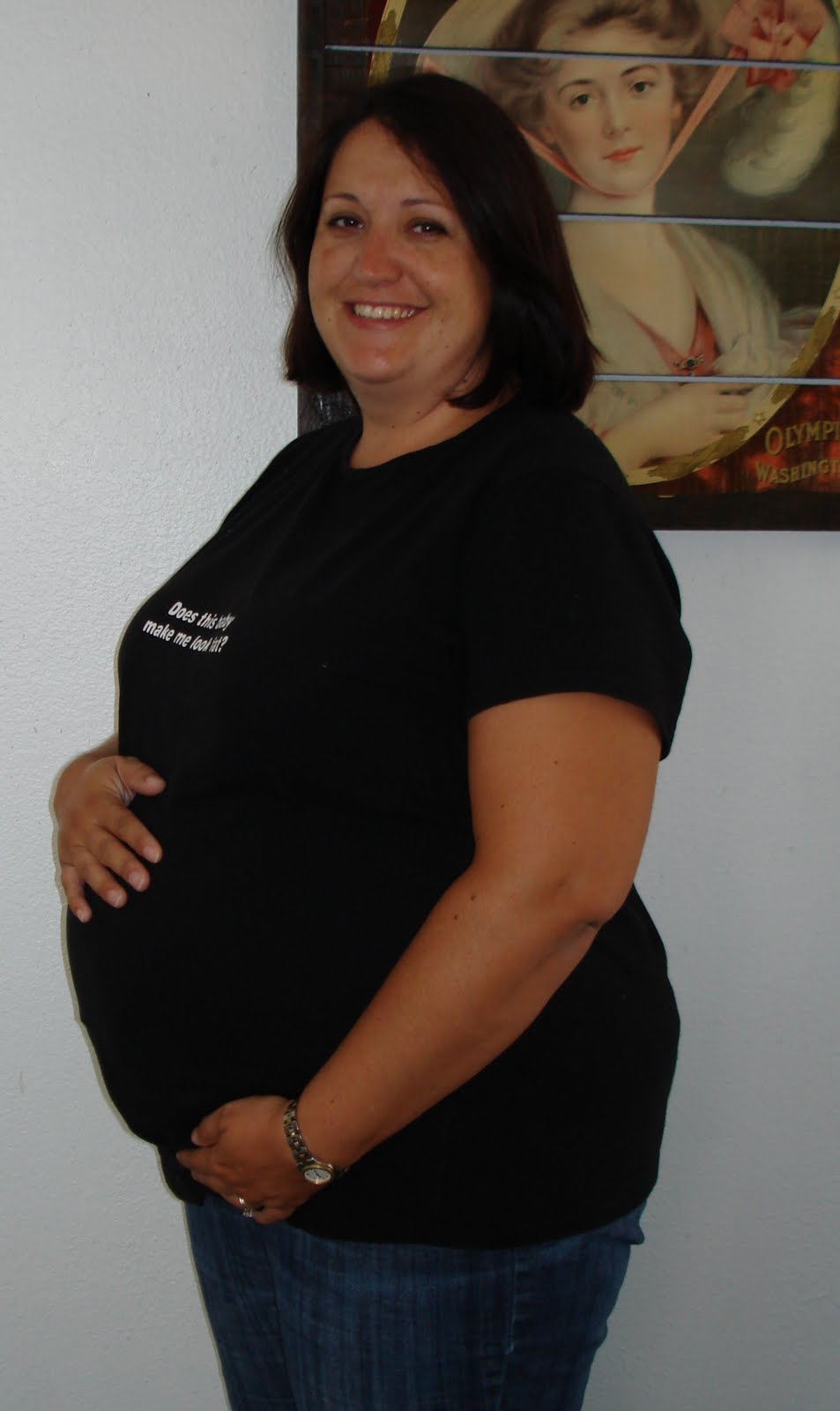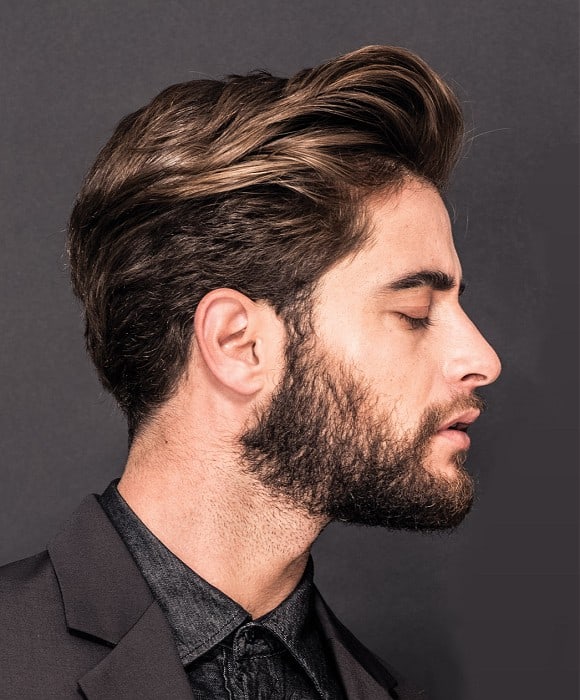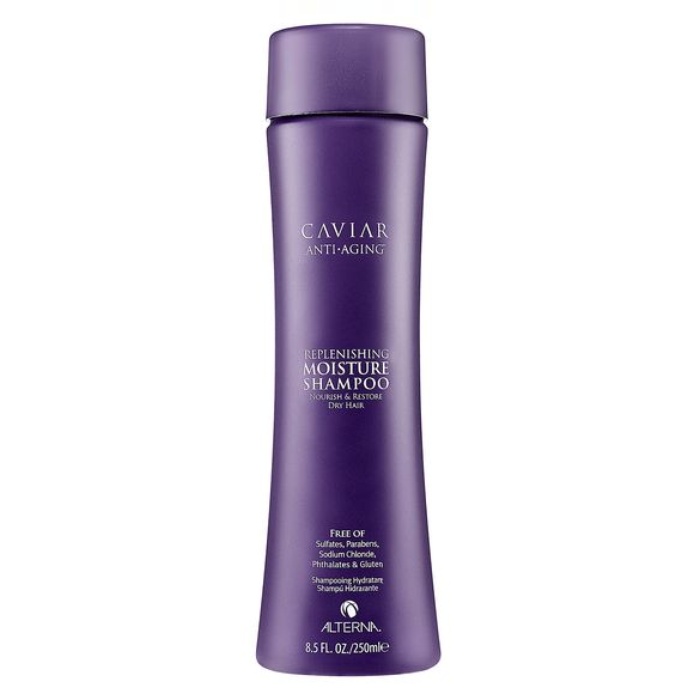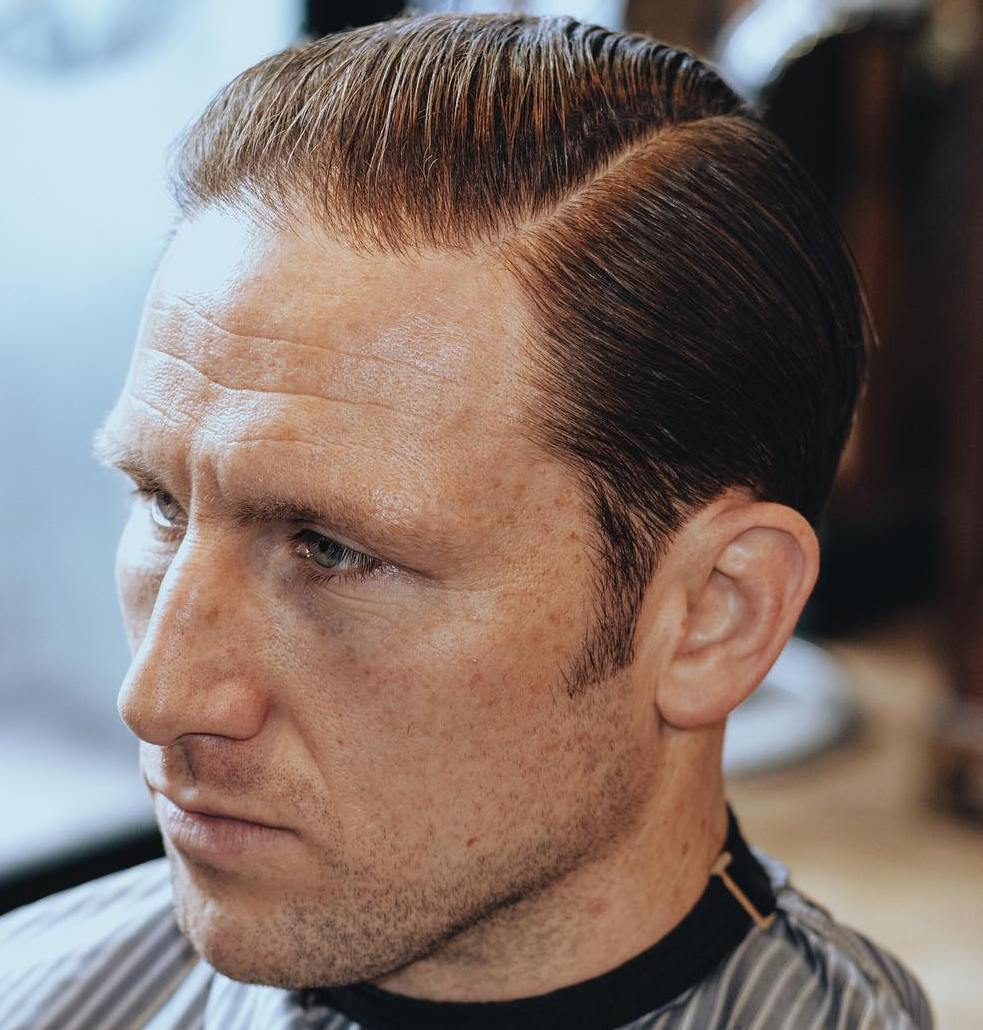Know that for most people, hair returns to normal growth cycles once chemo is stopped. The use of molecularly targeted agents in cancer treatment has also been associated with hair loss rates as high as 60%.
Does Chemotherapy Always Make You Lose Your Hair, Cut your hair, especially if it is long, before it falls out. In any case, applying at least some of the tricks we gave you, will work wonders.

After you start chemo, hair loss might make your scalp feel itchy, irritated, or sensitive. Your doctor is the best person to inform you about how much hair loss you can expect. Your scalp may be sensitive and you may lose hair. Uncategorized january 6, 2022 0 masuzi.
Don’t wash it too often and always use a gentle, mild shampoo.
This means that if you lose your hair due to chemotherapy, it will almost always grow back when your treatment is over. Patients usually regrow hair 3 to 10 months after treatment. It can affect hair all over your body. Some people find that it starts to grow back before they have completed all their chemotherapy. Talk to your hairdresser about making your hair look as good as possible even if it is thin or patchy. Whether or not your hair remains as it is, thins or falls out, depends on the drugs and dosages.
 Source: healthgoesup.com
Source: healthgoesup.com
There are also some types of chemotherapy drugs that rarely cause hair loss. Chemotherapy is usually given in cycles. To help your hair grow back strong, treat it gently. When you’re in chemotherapy, chemicals are introduced to your body to disrupt cancer cells, so that they can’t multiply. It can affect hair all over your body.
 Source: youtube.com
Source: youtube.com
Chemotherapy may cause hair loss all over your body — not just on your scalp. Whether or not your hair remains as it is, thins or falls out, depends on the drugs and dosages. Hair loss caused by chemotherapy is almost always temporary so hair will usually start to grow back once your treatment is over. Sometimes your eyelash, eyebrow,.
 Source: makeuptutor.org
Source: makeuptutor.org
Most people think that chemotherapy drugs always cause hair loss. Some treatments cause only partial hair loss or thinning, while others cause people to lose hair from all over their body. Chemotherapy causes hair loss by disrupting the hair follicles. Whether or not your hair remains as it is, thins or falls out, depends on the drugs and dosages. Your.
 Source: youtube.com
Source: youtube.com
How much hair you lose will depend on the type of drugs you are given and the dose. Chemotherapy affects the normal hair growth cycle and causes hair loss. Some chemotherapy drugs are known to often cause hair loss and hair thinning, while others may cause only a small amount of it. Most people think that chemotherapy drugs always cause.
 Source: pinterest.com
Source: pinterest.com
If you need to use a hair dryer, make sure you always use the lowest temperature setting. Since hair often does not fall out evenly, some find losing short hair is less distressing. Some treatments cause only partial hair loss or thinning, while others cause people to lose hair from all over their body. Some people find that it starts.
 Source: youtube.com
Source: youtube.com
Other types of chemotherapy may cause complete hair loss. Some people say this gives them a sense of control. Some chemotherapy drugs are known to often cause hair loss and hair thinning, while others may cause only a small amount of it. You might not feel like it at first but surrounding yourself with fun people and activities will lift.
 Source: pinterest.com
Source: pinterest.com
Some drugs don’t cause any hair loss and some cause hair to thin. Cut your hair, especially if it is long, before it falls out. Shaving your head can help ease the discomfort. Hair loss caused by chemotherapy is almost always temporary so hair will usually start to grow back once your treatment is over. It might include your eyelashes,.
 Source: hairfinder.com
Source: hairfinder.com
How much hair you lose will depend on the type of drugs you are given and the dose. Will chemo make you lose your hair. In any case, applying at least some of the tricks we gave you, will work wonders. Your doctor is the best person to inform you about how much hair loss you can expect. Some chemotherapy.
 Source: livescience.com
Source: livescience.com
The likelihood of hair loss depends on the specific drug used,. You may continue to lose hair throughout chemo and for a few weeks after treatment stops. Does your hair always fall out with chemotherapy uncategorized february 19, 2022 0 masuzi my chemotherapy diary 52 photos of hair loss and recovery when will you begin losing your hair during chemo.
 Source: pinterest.com
Source: pinterest.com
Not all chemotherapy will make your hair fall out. It might include your eyelashes, eyebrows, underarm, leg and sometimes pubic hair. But some don�t cause any hair loss at all or only slight thinning. Uncategorized january 6, 2022 0 masuzi. Some people shave their heads once the hair begins to fall out.
 Source: drjockers.com
Source: drjockers.com
Dealing with chemotherapy hair loss can be a strain on your mental health, so you should take the time to take your mind off things and relax. Hair loss may occur as early as the second or third week after the first cycle of chemotherapy, although it may not happen until after the second cycle of chemotherapy. You’ll probably notice.
 Source: nzheadline.com
Source: nzheadline.com
The reason hair loss occurs in certain circumstances with certain chemotherapeutic agents is because some chemotherapeutic agents are aimed at the most rapidly dividing cells. If you experience hair loss as a side effect, it will probably start to grow back within three to six weeks of finishing treatment. Since hair often does not fall out evenly, some find losing.
 Source: cancerisanasshole.com
Source: cancerisanasshole.com
Your doctor can advise you about what to expect. In any case, applying at least some of the tricks we gave you, will work wonders. After you start chemo, hair loss might make your scalp feel itchy, irritated, or sensitive. Your doctor is the best person to inform you about how much hair loss you can expect. Some chemotherapy drugs.
 Source: pinterest.com
Source: pinterest.com
Don’t wash it too often and always use a gentle, mild shampoo. Hair loss caused by chemotherapy is almost always temporary so hair will usually start to grow back once your treatment is over. Your doctor can advise you about what to expect. Many people also prefer the look of a cleanly shaved. Some people say this gives them a.
 Source: contourbysherise.ie
Source: contourbysherise.ie
Most of the time, hair loss from chemotherapy is temporary. You’ll probably notice more hair on your pillow, in the shower drain, and on your brush or comb. Explain to family and friends, especially children, that the chemotherapy may make your hair fall out. Drugs that cause hair loss or thinning chemotherapy. Most people think that chemotherapy drugs always cause.
 Source: youtube.com
Source: youtube.com
If you need to use a hair dryer, make sure you always use the lowest temperature setting. Dealing with chemotherapy hair loss can be a strain on your mental health, so you should take the time to take your mind off things and relax. In any case, applying at least some of the tricks we gave you, will work wonders..
 Source: pinterest.com
Source: pinterest.com
Other types of chemotherapy may cause complete hair loss. No, not all chemotherapy causes hair loss. Chemotherapy does not always cause hair loss. Cut your hair, especially if it is long, before it falls out. Your scalp may feel tender.
 Source: cancerresearchuk.org
Source: cancerresearchuk.org
Some chemotherapy drugs are known to often cause hair loss and hair thinning, while others may cause only a small amount of it. Many people also prefer the look of a cleanly shaved. Most people think that chemotherapy drugs always cause hair loss. Not all chemotherapy will make your hair fall out. Sometimes your eyelash, eyebrow, armpit, pubic and other.
 Source: huffingtonpost.com
Source: huffingtonpost.com
If you need to use a hair dryer, make sure you always use the lowest temperature setting. Chemotherapy affects the normal hair growth cycle and causes hair loss. No, not all chemotherapy causes hair loss. In most cases, hair loss from chemotherapy is temporary. In the early stages of hair growth, avoid coloring or.
 Source: thaipoliceplus.com
Source: thaipoliceplus.com
Some chemotherapy drugs are known to often cause hair loss and hair thinning, while others may cause only a small amount of it. There is some evidence that chemotherapy may result in prolonged or permanent hair loss, particularly with taxane drugs. The majority of hair loss from chemotherapy is temporary. In the end, different people respond to chemo differently, even..
 Source: universityhealthnews.com
Source: universityhealthnews.com
Drugs that cause hair loss or thinning chemotherapy. After you start chemo, hair loss might make your scalp feel itchy, irritated, or sensitive. Your doctor is the best person to inform you about how much hair loss you can expect. You might not feel like it at first but surrounding yourself with fun people and activities will lift your mood.
 Source: popcultureworldnews.com
Source: popcultureworldnews.com
Does chemotherapy always cause hair loss? Other types of chemotherapy may cause complete hair loss. There are also some types of chemotherapy drugs that rarely cause hair loss. Hair loss does not occur with all chemotherapy. Some people find that it starts to grow back before they have completed all their chemotherapy.
 Source: pinterest.com
Source: pinterest.com
Most of the time, hair loss from chemotherapy is temporary. Some chemotherapy drugs are more likely than others to cause hair loss, and different doses can cause anything from a mere thinning to complete baldness. When you’re in chemotherapy, chemicals are introduced to your body to disrupt cancer cells, so that they can’t multiply. Since hair often does not fall.
 Source: abc.net.au
Source: abc.net.au
But some don�t cause any hair loss at all or only slight thinning. Know that for most people, hair returns to normal growth cycles once chemo is stopped. Not all chemotherapy will make your hair fall out. This means that if you lose your hair due to chemotherapy, it will almost always grow back when your treatment is over. Will.
 Source: youtube.com
Source: youtube.com
Your doctor is the best person to inform you about how much hair loss you can expect. Some treatments cause only partial hair loss or thinning, while others cause people to lose hair from all over their body. Cut your hair, especially if it is long, before it falls out. 3/ how do i care for my hair during my.
